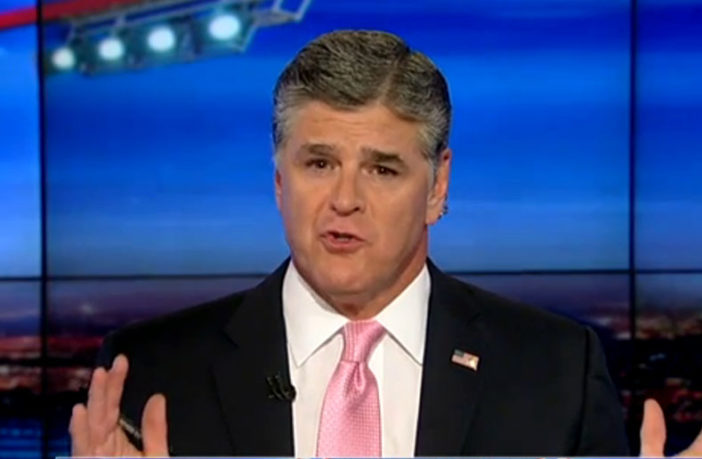A recent study published in the Journal of Public Economics provides evidence that Fox News Channel has had a profound influence on American political preferences and election outcomes from 2000 to 2020. The research demonstrates that increased Fox News viewership has pushed Americans’ ideological preferences rightward and contributed to a measurable increase in Republican vote shares across multiple levels of government.
Fox News, launched in 1996, has become one of the most influential and widely viewed cable news networks in the United States. Known for its conservative slant, Fox News has consistently dominated television ratings, drawing millions of viewers daily. Its programming blends news coverage with opinion-driven commentary, often framing stories in ways that align with conservative political and social values.
Over the years, the network has cultivated a loyal audience while also attracting criticism for its role in polarizing public discourse. Its influence on American politics and public opinion, especially given its significant audience reach, has become a focal point for researchers exploring the relationship between media consumption and political behavior.
While earlier research suggested that Fox News influenced presidential elections and shifted viewers’ policy preferences, questions remained about its impact on other levels of government and whether its influence had grown or diminished over time. Additionally, much of the existing work focused on specific moments in time, leaving gaps in understanding the network’s long-term effects on American political dynamics.
To assess the impact of Fox News on American political preferences and election outcomes, the researchers employed an innovative approach that leveraged Fox News’ channel position as a natural experiment. Channel positions, determined by local cable providers for historical and arbitrary reasons, affect how likely viewers are to watch a channel. Lower channel numbers, being more accessible, lead to higher viewership. By using channel position as an instrumental variable, the researchers could isolate Fox News’ influence from other factors that might affect political behavior, such as pre-existing local political preferences.
The study incorporated data spanning two decades (2000–2020) and included multiple sources. Nielsen ratings provided information on Fox News viewership at the county level, while political attitudes were measured using survey responses from over 661,000 Americans through large-scale studies like the National Annenberg Election Survey and the Cooperative Congressional Election Study. Additionally, election outcomes for presidential, Senate, House, and gubernatorial races were drawn from comprehensive datasets on county-level vote shares.
The researchers found that Fox News had a significant and sustained impact on American political preferences and elections. Counties with greater exposure to Fox News due to lower channel positioning experienced a noticeable rightward shift in political ideology. This shift was reflected in survey respondents identifying more frequently as Republicans and adopting more conservative policy preferences. Over the two-decade span, Fox News’ influence on political identity and ideology grew stronger, particularly during the 2010s.
The analysis also demonstrated that this ideological shift translated into measurable electoral gains for Republican candidates. In presidential elections, increased Fox News viewership was associated with a 0.5 to 0.6 percentage-point boost in Republican vote shares in recent cycles, including the closely contested elections of 2016 and 2020. These margins were particularly significant in battleground states where small shifts in vote shares could influence the outcome of the entire election.
The impact of Fox News extended beyond presidential races to down-ballot elections. Republican candidates for Senate, House, and gubernatorial races benefited from a similar increase in vote shares, with gains ranging from 0.5 to 1.5 percentage points depending on the office and election year. These effects were most pronounced in recent years, highlighting the growing influence of national media on state and local elections. The findings underscore how Fox News has contributed to the nationalization of American politics, where voter behavior is increasingly shaped by partisan media rather than localized issues.
“This paper has provided the most comprehensive, holistic evaluation to-date of Fox New Channel’s impacts on the American political system,” the researchers concluded. “We have shown that FNC has a had a large and growing impact on American politics over the past two decades. It has shifted the political preferences of Americans — increasing the share of Republicans in each county and pushing their ideological preferences to the right.”
The substantial effect of a one-standard-deviation shift in Fox News’ channel position, equivalent to 22 additional minutes of monthly viewership, surpasses the impact of changes in local wages or political advertising exposure. “Given the estimated effect sizes on presidential elections, for example, Fox News could have easily tipped the scales for Donald Trump in 2016,” the researchers continued.
The study adds to the growing body of research highlighting the significant impact of partisan media on elections and political behavior both in the United States and globally. The findings suggest Fox News has shaped party affiliation and ideology, contributing to a Republican advantage in elections and policymaking, while leaving opportunities for further research into its broader effects.
“For instance, future work could examine FNC’s effects in local elections, as well as on local policy outcomes,” the researchers wrote. “It would also be useful to examine heterogeneity in FNC’s effects on different types of voters. For instance, does FNC primarily influence Republican-leaning voters? Or perhaps FNC mainly influences older voters?”
The study, “From viewers to voters: Tracing Fox News’ impact on American democracy,” was authored by Elliott Ash, Sergio Galletta, Matteo Pinna, and Christopher S. Warshaw.




